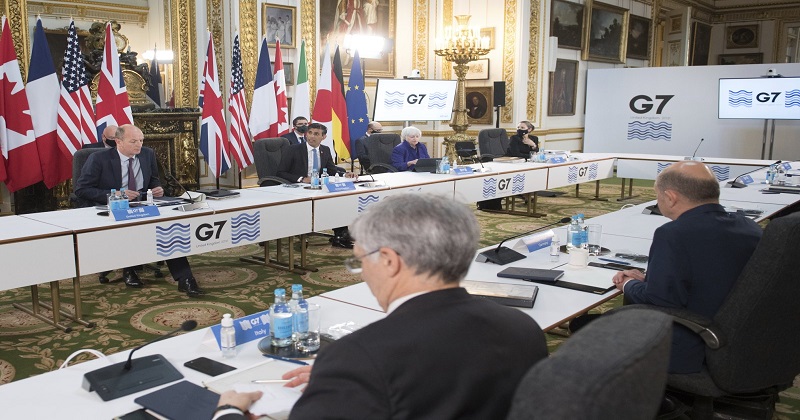
Group of Seven rich nations will seek to overcome long-standing differences and strike a landmark deal to close the net on large companies that they say do not pay enough tax. The proposed accord, which could form the basis of a global pact next month, is aimed at ending a decades-long “race to the bottom” in which countries have competed to attract corporate giants with ultra-low tax rates and exemptions.
That has in turn cost their public coffers hundreds of billions of dollars – a shortfall they now need to recoup all the more urgently to pay for the huge cost of propping up economies ravaged by the coronavirus crisis.
British finance minister Rishi Sunak, who is chairing the talks, also wants large companies to be required to declare their environmental impact in a consistent way. The G7 is likely to commit to avoid withdrawing Covid stimulus too early as well.
Rich nations have struggled for years to agree on a way to raise more revenue from large multinationals such as Google, Amazon, and Facebook, which often book profits in jurisdictions where they pay little or no tax. U.S. President Joe Biden’s administration has given the stalled talks fresh impetus by proposing a minimum global corporation tax rate of 15%, above the level in countries such as Ireland but below the lowest level in the G7.
Yet major disagreements remain on both the minimum rate at which companies should be taxed and on how the rules will be drawn up to ensure that very large firms with lower profit margins, such as Amazon, face higher taxes.
British, Italian, and Spanish fashion, cosmetics, and luxury goods exports to the United States will be among those facing new 25% tariffs later this year if there is no compromise. The U.S. has proposed levying the new global minimum tax only on the world’s 100 largest and most profitable companies.
Britain, Germany, and France are open to this but want to ensure companies such as Amazon – which has lower profit margins than other tech firms – do not escape the net.

Post Your Comments